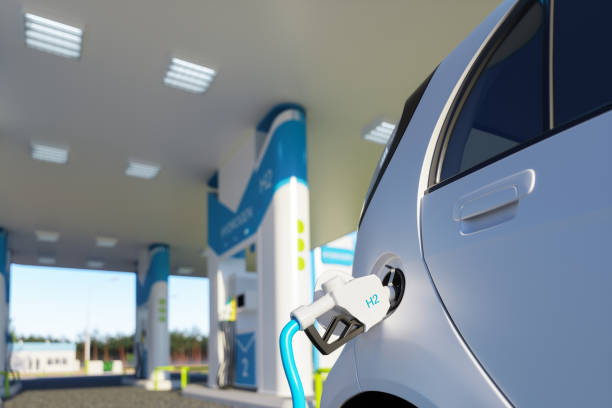Spain, Portugal and parts of France hit by massive power outage. We see that campaign performance is affected for these countries.
Self-charging hybrid cars are a great option for drivers who want lower fuel costs without the need to plug in. These hybrids charge their batteries while driving, making them perfect for city traffic and long journeys. In 2025, carmakers have improved hybrid technology, offering better fuel efficiency and lower emissions. By reviewing the best self-charging hybrids in Britain, you can find a car that balances performance, comfort, and cost-effectiveness.

How did the power outage impact electric car usage?
The massive power outage severely disrupted electric car usage across the affected regions. EV owners found themselves unable to charge their vehicles at home or at public charging stations, leading to widespread range anxiety and frustration. This event exposed the critical dependency of electric vehicles on a stable and reliable power grid, prompting many to reconsider the practicality of EVs in the face of potential infrastructure failures.
What were the immediate effects on EV sales campaigns?
The power outage had an immediate and significant impact on ongoing EV sales campaigns in Spain, Portugal, and parts of France. Dealerships reported a sharp decline in inquiries and test drive requests for electric vehicles. Marketing efforts that had been highlighting the convenience and reliability of EVs suddenly faced a credibility crisis. Automakers and dealerships were forced to quickly pivot their messaging to address concerns about grid stability and the resilience of electric vehicles during power outages.
Are hybrid vehicles seeing increased interest as a result?
In the wake of the power outage, there has been a notable surge in interest for hybrid vehicles, particularly self-charging hybrids. Consumers are increasingly viewing hybrids as a more reliable alternative that combines the benefits of electric propulsion with the security of a gasoline engine. Models like the Hyundai Tucson Hybrid have seen a spike in inquiries, as they offer a balance of efficiency and peace of mind in the event of future power disruptions.
What are the best hybrid cars and SUVs for 2025?
Looking ahead to 2025, several hybrid models are poised to dominate the market, offering advanced technology and improved efficiency. The Toyota RAV4 Hybrid continues to be a top contender in the SUV segment, while the Honda CR-V Hybrid offers a compelling blend of space and fuel economy. In the sedan category, the Hyundai Sonata Hybrid and Toyota Camry Hybrid remain strong choices. For those seeking luxury, the Lexus NX Hybrid and BMW X5 xDrive45e provide upscale options with impressive electric ranges.
How are fast-charging hybrid cars evolving?
Fast-charging hybrid cars are evolving rapidly to meet consumer demands for quicker charging times and extended electric ranges. Plug-in hybrid electric vehicles (PHEVs) are at the forefront of this evolution, with models like the BMW 330e and Volvo XC60 Recharge offering improved charging capabilities. These vehicles can now charge at higher rates, allowing for shorter charging stops and greater flexibility for longer journeys. Additionally, advancements in battery technology are enabling PHEVs to offer longer electric-only ranges, making them more versatile for daily use.
What is the best plug-in hybrid SUV currently available?
The best plug-in hybrid SUV currently available is a hotly contested title, but several models stand out for their combination of performance, efficiency, and practicality. The Volvo XC90 Recharge offers a luxurious interior, impressive electric range, and strong performance. The Mitsubishi Outlander PHEV remains a popular choice for its affordable price point and versatile all-wheel-drive system. For those seeking a balance of luxury and efficiency, the BMW X5 xDrive45e provides a compelling option with its powerful drivetrain and refined driving experience.
In light of the recent power outage and its impact on electric vehicle perception, it’s important to consider the cost implications for consumers weighing their options between fully electric, hybrid, and traditional vehicles. Here’s a comparison of some popular models across different powertrain types:
| Vehicle Model | Type | Starting Price (Estimated) | Fuel Economy (Combined) |
|---|---|---|---|
| Nissan Leaf | Electric | £28,995 | 124 MPGe |
| Hyundai Tucson Hybrid | Hybrid | £32,500 | 49 MPG |
| Toyota RAV4 Plug-in Hybrid | Plug-in Hybrid | £45,750 | 282.5 MPGe |
| Ford Kuga | Petrol | £27,305 | 42 MPG |
Prices, rates, or cost estimates mentioned in this article are based on the latest available information but may change over time. Independent research is advised before making financial decisions.
As the automotive industry continues to evolve in response to environmental concerns and technological advancements, the recent power outage serves as a reminder of the importance of a diversified approach to sustainable transportation. While electric vehicles remain a crucial part of the solution to reduce carbon emissions, the event has underscored the value of hybrid technologies as a bridge to a fully electric future. As power infrastructure improves and becomes more resilient, consumer confidence in electric vehicles is likely to rebound, but in the meantime, hybrid vehicles offer a compelling compromise for those seeking efficiency without sacrificing reliability.
The shared information of this article is up-to-date as of the publishing date. For more up-to-date information, please conduct your own research.




